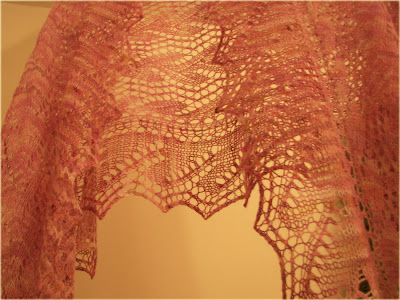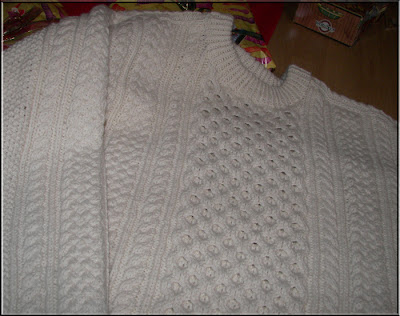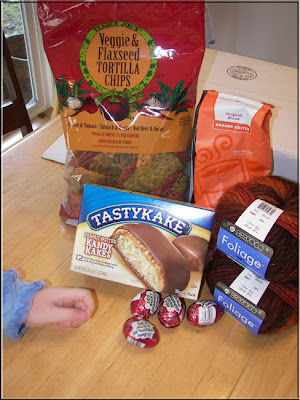
eeny

meeny

miney




There was also, of course, a copy of The Frozen Thames, the book which the Ice Fox game was intended to promote.
I just finished Search of the Moon King's Daughter. It's a novel for young teens: a story about a family in England during the Industrial Revolution.
I don't know about you, but whenever I hear the words "Industrial Revolution" my scalp prickles. I remember my Grade 9 Social Studies teacher introducing us to the concept of "exploitation" - a word which became a standing joke among the [first world, privileged, ignorant, selfish] kids in that class. You know the kind of thing: "Mr. Buhler, Megan is exploiting me" or "I think this amount of homework qualifies as exploitation" or "I'm just gonna exploit you for a minute if you don't mind." It was only several years later, in university, studying the history of Britain and reading North and South, that I began to grasp the horrors of that time.
When I was browsing McClelland's catalogue and came across this volume, I was cautiously interested. I read as many reviews as I could find, and when I saw the words "entirely satisfactory ending", I decided to order it.
The story is set in a small textile city near Manchester. The protagonist is a young girl, Emmaline, employed as a seamstress in her wealthy aunt's house. Emmaline's mill-drudge mother is terribly injured in a work accident, and her subsequent addiction to laudanum motivates her to sell her five-year-old son as a climbing boy for a London chimney sweep. When Emmaline discovers what her mother has done, she sets off to London, by herself, to buy her brother back from his master.
When I first opened it, I wasn't sure whether I'd like the book. There is an awkwardness about the first several chapters, which are not chronological. They are somewhat heavy-handed: it's very clear that the author wants the reader to feel the tension and drama right from the start, before we even really care about the characters.
After the stumbling start, though, the book settles in fairly well. Emmaline's adventures in London are innocent enough...more innocent, I feel, than realism would allow. It's suitable to its audience, though. Emmaline does encounter the nastier aspects of life as a member of London's lower classes: the pregnancy of a housemaid by the son of the house, the starvation and....."exploitation" (Mr D. would be so proud of me) of the poor climbing boys, and the glittering despair of the disease-ridden, hollow-eyed prostitutes in St Giles' district. These and other mature themes (for instance the unaccountable dissimilarity in appearance between Emmaline and her "brother" Tommy, whom the Moon King's relatives icily refuse to countenance) make the book unsuitable for children under a certain age, although they are presented nicely glossed over: dimly lit.
There is one thing about this novel to which I strenuously object. The girl Emmaline is a far stronger, more graceful, morally-developed character than her history would believably produce. Her mother is an addictive, sluttish, alcoholic whose foolish, weak-willed, cuckolded shopkeeper poet of a husband is the titular "Moon King" to his children. After his death his now-poverty-stricken family, including the ill-fated infant Tommy, are turned out into the streets to end up penniless, shivering, and starving in the grimy squalor of mill-workers' lodgings. They live five miserable years there before the loom accident cripples the mother, and yet out of all this Emmaline emerges soft-spoken, erudite, strong-willed, decisive, tasteful, and sweetly deferential to her elders. Without getting into a nature/nurture debate, the whole business requires the partial - if not entire - suspension of the reader's disbelief. Not that there isn't a precedent for this kind of idealization among similarly themed fiction: Oliver Twist, star of the eponymous novel, is another little guy famous for holding onto his sweet angelic innocence in the worst of circumstances.
Despite its occasional shortcomings and taken in the spirit in which it's offered, Search of the Moon King's Daughter is, in the end, a satisfactory read. It would be a useful part of a teen's introduction to the depressing - yet exhilirating - industrialised world of Charles Dickens, Henry Fielding, and Thomas "'done-because-we-are-too-menny'" Hardy.














Dear Auntie
Oh, what a nice jumper
I've always adored powder blue
and fancy you thinking of
orange and pink
for the stripes
how clever of you!Dear Uncle
The soap is terrific
so useful and such a kind thought
and how did you guess that
I'd just used the last of
the soap that last Christmas brought?Dear Gran
Many thanks for the hankies
Now I really can't wait for the 'flu
and the daisies embroidered
in red round the "M"
for Michael
how thoughtful of you!Dear Cousin
What socks!
and the same sort you wear
so you must be
the last word in style
and I'm certain you're right that the
luminous green
will make me stand out a mile.Dear Sister
I quite understand your concern
it's a risk sending jam in the post
But I think I've pulled out
all the big bits of glass
so it won't taste too sharp
spread on toastDear Grandad
Don't fret
I'm delighted
So don't think your gift will offend
I'm not at all hurt
that you gave up this year
and just sent me a fiver to spend.
Clue Eight - Nuns and Habits
The Quest for the Ice Fox. Near Limehouse, upon The Frozen Thames.
51.507048 latitude
-0.032623 longitude
Latitude Clue
To move north along the latitude to the eighth sighting of the fox, add 5052 to the year The Pagoda in Kew Gardens was built. Then divide by a million and add the result to the source latitude.
Longitude Clue
To move west along the longitude to the eighth sighting of the fox, multiply 10167 by two times the number of Henry Moore’s standing figures in Battersea Park. Then divide by a million and add the result to the source longitude. The place upon which you land will help you solve this cryptic clue:
For whom the bell tolls, in a manner of speaking.
The one-word plural answer is your key to this cipher:
JIE HBITQ JIE RAEI RAE ITHOEP JY LEIKE XJT QBIS C QJIS COJTR.
And that cipher reveals a two digit number you will need to solve the final puzzle of the Quest for the Ice Fox. Collect these numbers to determine the final destination of our wily, frigid friend.
=======The End Game, at Last!
Congratulations: if you’ve solved all the clues, you should now have a collection of eight two digit numbers, one for each clue solution. Those numbers, as promised, are your keys to finding the spot where the fox finally weighed anchor. Here’s how. Each two digit number is a part of either the latitude or longitude of the fox’s final destination. You put them together like this:
Latitude: C3.C6C5C1
Longitude: -C7.C2C8C4
Got the solution? Great!














Though the subject matter may be considered morbid from the perspective of some other cultures, celebrants typically approach the Day of the Dead joyfully, and though it occurs roughly at the same time as Hallowe'en, All Saints' Day and All Souls' Day, the traditional mood is much brighter with emphasis on celebrating and honoring the lives of the deceased, and celebrating the continuation of life; the belief is not that death is the end, but rather the beginning of a new stage in life.So what do you think? Will you publish your own eulogy on the Day of the Dead?
Shannon's Eulogy
By Shannon
We are gathered here today to remember Shannon, and to celebrate her life. Everyone here has a story of some kind to tell - everyone remembers something about her.
Some people in this room are remembering that she made them laugh. She was often funny. She could tell a joke well, when she remembered one, but she was at her best when she was in a group of people, and making the most of the interplay of words and ideas. She was a great one to have at a party.
She told me once that often people who met her thought she was proud, or annoying, or too loud. She said she had tried for a few years to quiet down, but just ended up bored and depressed. Her conclusion? "It's better to be disliked than to be insipid."
She was a great friend. She was the one you wanted to have with you when you went dancing with a bunch of girls, because if circumstances demanded it, she'd tell off - or, for that matter, sucker punch - any obnoxious men who threatened to encroach on any of her friends. She was bold enough to step in front of her friends and say "Get lost, jackass" if it needed to be said.
She was the first to volunteer to walk you home. "Boy, there's some crazy people out there, you can't be too careful," she'd say as she got her coat. "Luckily I can kick ass, if ass-kicking is in order - don't worry."
She had a cheeky grin.
She wasn't shy, and easily drew out those who were.
She refrained from judging others. She used to say, "Anybody is capable of anything, given the right circumstances."
She was a good cook. She hated it when people attached moral value to eating or not eating. She pitied people who said "I'm being bad" while reaching for a bite of cheesecake.
She loved to read.
She wasn't much for TV, but she passionately loved Buffy, and tried to get everyone she knew to watch it. "It's not what you'd think", she insisted to them as they laughed at her.
She didn't much care if people laughed at her.
She believed in the sisterhood of women. She defined herself in terms of these relationships. Scrawled on the flyleaf of a notebook from her knitting collection are the words: "This book belongs to Shannon - daughter, sister, mother, friend.....lover, fighter, scholar, writer, singer, nonconformist, libertarian." And then, after that: "Down with mass production".
She esteemed the uniqueness of each person's beauty.
Except her own.
She despised the society she lived in, for brainwashing its citizens into complacency, and suspected the school system was really a training ground for conformists. "They get 'em young," she would warn you, "and they never let them go - the poor kids are sunk. What choice do they have but to fit into their prescribed roles, if they are taught to revere the average?"
She tried to raise her kids to be free. She wanted them to know their own power, and to resist control by the mainstream.
She worried constantly that she was failing them.
She knew she could do anything, and was willing to try....Anything.
But she never truly believed her achievements, even in the midst of success.
She would be the first to say that she was a complicated person...then she would shrug and remark, "But then, who isn't?"
Sorting through the collected works of her life, a picture starts to form of the person she was. Creative. Impulsive. Thoughtful. Extravagant. Ambitious. Mercurial. Exuberant. Most of what she created is gone - given over the years to family members and friends with a laugh, and a rueful shake of the head: "I hope it fits," or "Give it back if you don't wear it, okay?" I think she knew that most of those things might never be worn and, despite her request, would never be given back, either, to be ripped out and made into something new. Most of those things are probably tucked away into drawers, or folded carefully on shelves, or maybe....well, maybe some of them are here today. Worn, for the first time, out of tribute to a woman who spent so many hours of her life creating small imperfect tokens for her loved ones.
But it's the other things that are most compelling - the things she never made, but planned to make. The bulbs she bought, but didn't plant. The things she never quite finished, but started. The fabric she couldn't bring herself to cut into: the yarn she never quite cast on. These are the things she pulled out over and over, looked at, examined closely, held up against herself, and then put carefully away again. I don't know why she never got started - I kind of wish I could talk to her about it. I'd like to ask her why that beautiful orchid wool was never knit up: why the soft hand-dyed merino sock yarn is still bundled into a skein. I'd like to ask her what she planned to do with the two meters of white Irish linen, and the muted grey worsted whose label proclaims, "Best English Woollens - One Skirt Length". It has been washed, dried, steamed, and is "needle-ready". I know in her mind's eye these garments were carefully crafted, and meticulously finished, and hung gracefully on her when she wore them. I know she hoped they'd be perfect, and was excited about making them. So I wonder whether maybe she never thought she was quite good enough...not a good enough knitter to experiment with that beautiful alpaca laceweight. Not a good enough seamstress to justify cutting the Italian silk. Not glamorous enough to waste expensive cashmere on.
I think if she could give you - her friends - a message, it would sound something like this.
Be bold.
Stand by your friends.
Know your own strength, and revel in it.
You're every bit as good as you think you are....in fact, you're probably better.
Laugh as often as possible.
Live outside the mainstream.
Spend on yourself: money, energy, and time.
Give lavishly.
Accept graciously.
Agree enthusiastically.
Disagree strongly.
Create. Create whatever you can, out of everything you have. Create peace, and safety, and warmth. Create friendships. Create things: garments, or sculptures, or cakes or words or paintings or music or laughter, to serve as mementos of your hope and your love and your grief, for when the days of your life are spent - your years counted out.
Love fiercely.
And say your piece.



